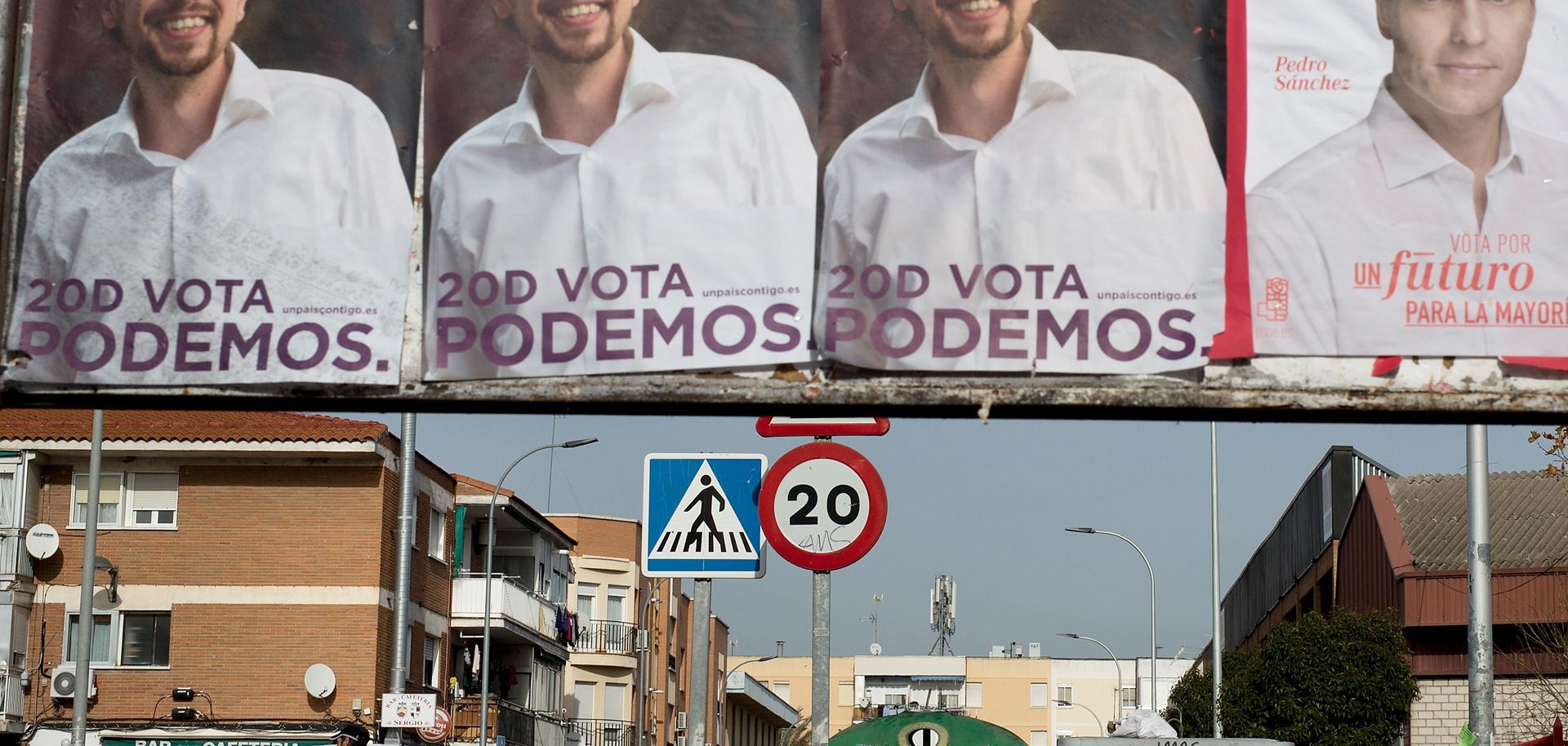ASSESSMENTS
Spanish Elections Highlight the Post-Franco System's End
Dec 19, 2015 | 15:11 GMT

(PABLO BLAZQUEZ DOMINQUEZ/Getty Images)
Summary
Spanish voters go to the polls Dec. 20 in a vote that underscores the end of an era. The country's current political phase can be said to have started with the 1975 death of Gen. Francisco Franco, Spain's military dictator for 36 years. Immediately after, the young King Juan Carlos I surprised the country by overseeing a swift process of democratization. The 1978 enactment of a liberal constitution ushered in three decades of stable two-party democracy, with power passing back and forth between the center-left Socialist Party and the center-right People's Party.
Now, for the first time, everything is different. Juan Carlos abdicated in 2014 in favor of his son, the untested Felipe VI. If polls are to be believed, the comfortable two-party system has now splintered into four parties, with the insurgent Ciudadanos and Podemos mounting strong challenges. And the 1978 constitution is being attacked from all sides, with three of the four contesting parties in agreement that it needs to be reformed. If Spain is now entering a new phase of its history, what can the country expect?
Subscribe Now
SubscribeAlready have an account?
